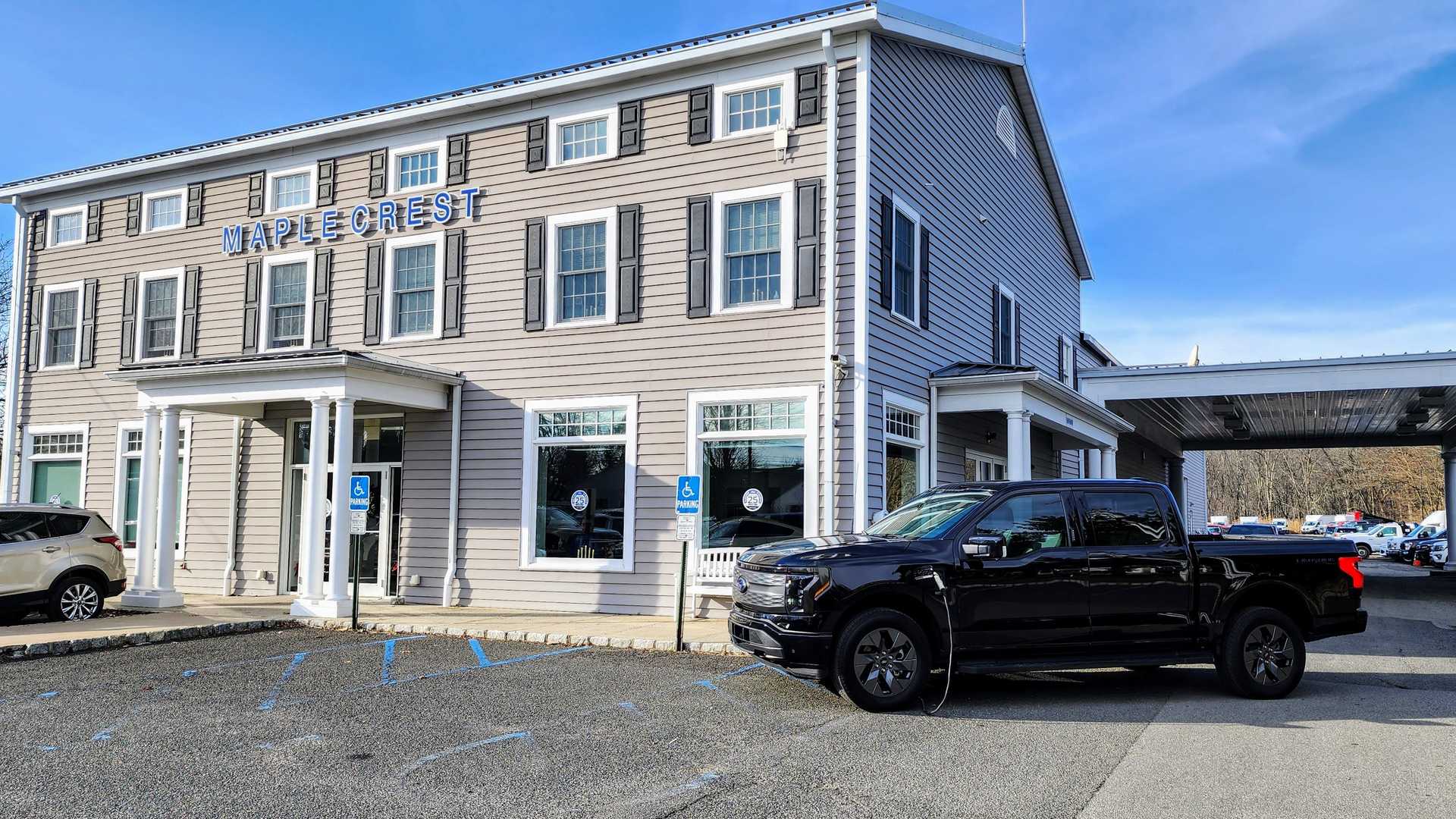
Ford announced today that it is sunsetting its Model E dealer certification program, effective July 1. The program was announced on September 14th, 2022, and officially began on Jan. 1 of this year. While the automaker's goal was to better compete with EV startups by requiring dealers to invest in charging stations, training, customer education and no-haggle pricing before they could sell EVs, Ford's dealers went full-throttle in their opposition to it—and even filed lawsuits over the plan.
InsideEVs was on hand when Ford announced the program at its dealership meetings in Las Vegas in 2022. At the time, it told its dealer network they had to invest in EV charging infrastructure, improve customer service, and agree to set EV pricing if they wanted to be a Model e dealership and continue to sell Ford's electric vehicles.
At the time, Ford split the company into three arms: Ford Blue Oval, Ford Pro, and Ford Model e. All of Ford's fully electric vehicles fell under the Model e umbrella, while plug-in hybrids and regular hybrids are part of Ford Blue Oval.
Ford dealers would be unable to sell fully electric vehicles unless they agreed to one of the two certification levels.
That's no longer the case. All Ford dealerships can sell electric vehicles beginning July 1.

Three Options
Ford gave its dealers until Oct. 31, 2022, less than two months after the announcement, to make a decision that would have huge implications for the franchise's future.
That deadline was extended to Dec. 2, as many dealers complained that six weeks wasn't enough time for such a major decision. The company offered its dealers three options:
- Become a Model e Certified Elite dealership
- Become a Model e Certified dealership
- Discontinue selling Model e vehicles (all Ford BEVs) effective January 1st, 2024
Of the 1,920 franchises that agreed to become Model e dealers, initially, 1,659 chose to be Certified Elite with full sales and service capability. Another 261 dealers chose to be Certified with full-service capability, limited sales, and a lower investment cost.
I was told today that about 1,500 dealers are Model e-certified dealerships, so about 400 of the initial hand-raisers decided against the Model e business model.
Dealers that opted out entirely would have the opportunity to tell Ford they wanted to be a Model e certified dealer in 2025, and start selling EVs on Jan. 1, 2027, after three years without getting any electric vehicles to sell.

Model e Dealership Requirements
Model e Certified Elite dealers were required to install two high-powered DC fast chargers, one level 2 charging station, and one DC fast charger had to be made available for public use.
Model e Certified dealers were only required to install one DC fast charger, which had to be available for the public. Initially, Certified dealers had a hard cap on the number of EVs they were allowed to sell each year, but Ford later removed that cap under intense pushback from its dealers.
Model e dealers were also required to post set prices for electric vehicles online on Ford's main website, not the dealer's website. Customers could then view the set pricing, complete the purchase online, and even schedule home delivery. However, the dealerships set the prices, not Ford, so there would likely be price variation from dealer to dealer.
Customers could then cross-shop different local dealers' prices online and choose the one with the lowest set price. The dealers had to honor the set pricing for every purchase, and Ford said it would be checking the purchase orders to ensure the set pricing was honored.
The dealers also had to undergo special training and offer service, including a drop-off/pick-up service.

Model e Dealer Certification is Scrapped
With today's announcement, the entire program is scrapped, or "sunsetted" as Ford put it. It's unfortunate, because ultimately the program would have made Ford dealerships better, and set Ford up to be more competitive as the industry transitions to electric.
I asked Marin Gjaja, COO of Ford Model e, if the decision to end the program only six months after it officially began was because of the intense pushback and lawsuits from dealership associations across the country. I was told that wasn't the case, but it's hard to believe that didn't play a major role in the decision to pull the plug.
I can't help but see this as a major missed opportunity for Ford and its dealers. Consumers aren't happy with the current dealership model, and Ford was trying to improve that while toeing the line of the archaic but strong dealership laws in the U.S.
Everyone loses here. The dealers may think they won, but they didn't. Short-term gains will be overwhelmed by long-term losses as consumers look to EV startups that work around the dealership laws and offer a set pricing model. That will eventually erode Ford's EV market share as consumers seek a better purchasing experience and the security of knowing they can pull into any Ford dealership and charge up when needed.







